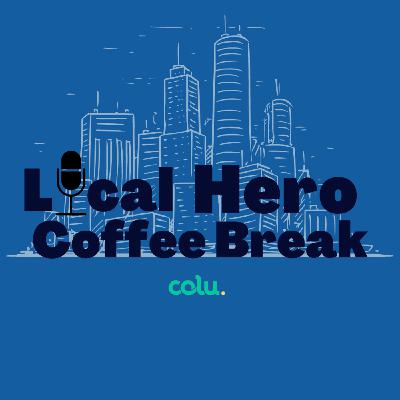
Local Hero Coffee Break
Author: Michael Mazur
Subscribed: 0Played: 0Description
In this podcast, Michael Mazur brings you the stories of local heroes who are innovating and working to create social and economic prosperity in communities all over the world.
These interviews aim to give listeners a digestible dose of information about how other local leaders are responding to key challenges. The format is designed to showcase the amazing work of local government officials and industry leaders and to learn about their perspectives and plans. This podcast was created to provide inspiration for those who want to take action in their communities.
In the podcast we talk about key topics including smart cities, bridging the digital divide, innovation, data, AI, blockchain, economic development, civic engagement, entrepreneurship within local communities, and much more!





